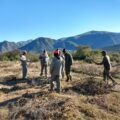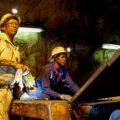The CO2 content of the TLTRO III scheme and its greening
This paper investigates the climate impact of central bank refinancing operations, with a focus on the European Central Bank’s Targeted Longer-Term Refinancing Operations (TLTRO) III programme.








